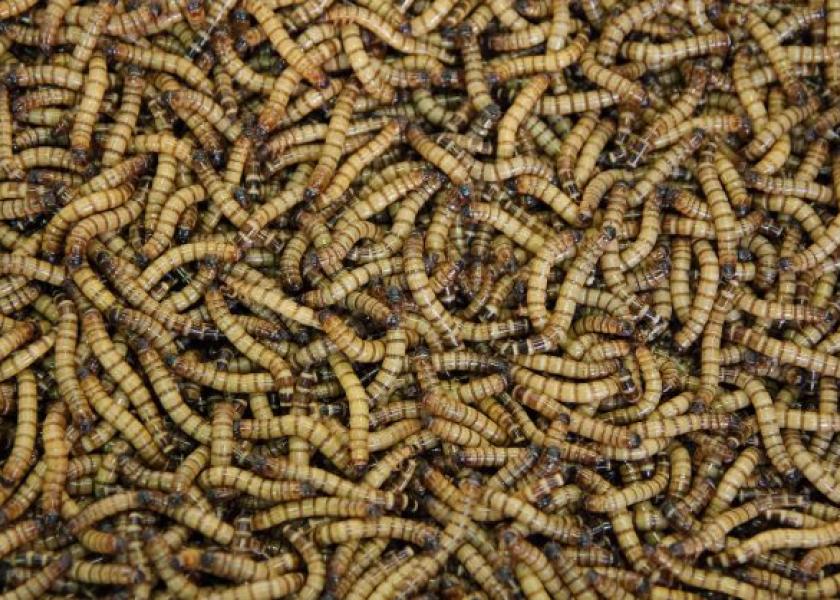Munching on Mealworms: The Next Meat-Alternative Snack?

While plant-based meat alternatives seem to have lost their hype, scientists are working to develop another protein alternative—mealworms.
Over 2 billion people across the globe consume insects as part of their diet, according to the Food and Agriculture Organization of the United Nations, while the thought of eating mealworms, grasshoppers and beetles sounds rather unappealing to most people in the U.S.
A recent Science Daily article claims, “insects are edible and could be a healthful alternative to traditional meat protein sources.”
With the rising cost of animal proteins such as beef, pork and lamb, as well as environmental concerns, the project’s principle investigator, In Hee Cho, Ph.D., explains there has been an increased interest in eating insects.
Containing high amounts of fatty acids, vitamins, minerals, fiber and high-quality protein, insects can be considered both a nutritious and healthy food source, the article claims.
Yet, the idea of munching on a mealworm remains unappetizing for a majority of meat-eaters.
Meat-like Mealworms
Scientists have set out to understand the insect’s flavor profile, comparing aromas of its lifecycle in egg, larva, pupa and adult stages.
Through a variety of cooking techniques, the mealworms gave off a diverse range of aromas. For instance, raw larvae had wet soil-like, shrimp-like and sweet corn-like aromas, while roasted or fried larvae had shrimp-like and fried oil-like attributes and created flavor compounds similar to those formed when meat and seafood are cooked.
Additionally, the mealworms were cooked with sugar to create caramelization reactions, producing meat-like and savory flavors.
Though mealworms will not likely take down the livestock industry any time soon, Cho is hopeful that the study’s results “will contribute to the commercial development of meat-like and savory flavorings and seasonings, and will encourage the convenience food industry to include edible insects in their products.”
Beef jerky, pork rinds or mealworm mix? Someday that could be up to you to decide.







